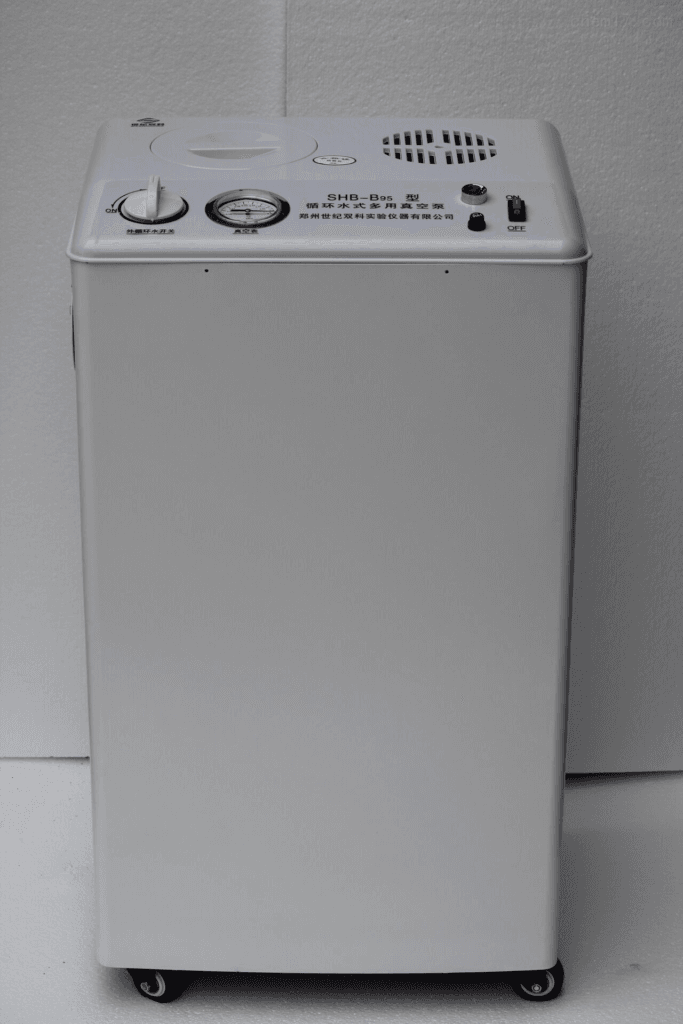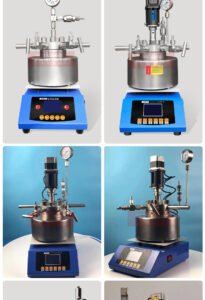Understanding the Role of a Recirculating Water Vacuum Pump in Scientific Applications
Vacuum systems play a crucial role in laboratory operations, providing the necessary pressure control for various scientific applications. The Recirculating Water Vacuum Pump has become an essential tool for researchers and industrial users who require reliable and efficient vacuum generation. This pump not only enhances laboratory efficiency but also conserves water, making it an eco-friendly choice. In this article, we will explore the capabilities, advantages, and applications of the Recirculating Water Vacuum Pump, focusing on how it improves laboratory workflows.

What is a Recirculating Water Vacuum Pump?
A Recirculating Water Vacuum Pump is a laboratory device that generates vacuum pressure by utilizing water circulation to create a low-pressure environment. Unlike traditional vacuum pumps, this model reuses water within a closed system, significantly reducing water waste while maintaining stable vacuum conditions. This technology is particularly valuable in chemistry, pharmaceuticals, and material science, where consistent vacuum pressure is essential.
Features of the Recirculating Water Vacuum Pump
The Vertical Circulating Water Vacuum Pump from EquilRxnLab is designed for efficiency, durability, and adaptability. Below are its key features:
- Power: 370W, ensuring reliable vacuum generation for various laboratory applications.
- Voltage: Operates at ~220V/50Hz, making it compatible with standard laboratory power sources.
- Flow Rate: 80 liters per minute, facilitating rapid water circulation for effective vacuum production.
- Lift: Capable of lifting water up to 12 meters, ensuring optimal performance in demanding setups.
- Vacuum Degree: Achieves 0.098 MPa, enabling efficient evaporation, filtration, and drying processes.
- Single-Head Air Extraction Rate: 10 liters per minute, allowing for efficient gas removal from multiple setups.
- Number of Pump Heads: Equipped with 5 pump heads, enhancing versatility for simultaneous multi-tasking.
- Water Tank Capacity: A 50-liter tank supports extended operation without frequent refilling.
These features make the Recirculating Water Vacuum Pump an excellent choice for laboratories seeking reliable vacuum solutions.
Advantages of Using a Recirculating Water Vacuum Pump
Laboratories and industrial settings benefit from Recirculating Water Vacuum Pumps in several ways:
- Water Conservation: Unlike traditional vacuum pumps that require continuous fresh water supply, this pump recirculates water, significantly reducing wastage.
- Energy Efficiency: The 370W motor ensures optimal power consumption without compromising performance.
- Reduced Operational Costs: The ability to reuse water minimizes utility expenses, making it a cost-effective solution.
- Stable Vacuum Pressure: Consistent vacuum levels enable precise experimental control, which is essential for repeatable results.
- Multi-User Capability: The five pump heads allow multiple users to perform different tasks simultaneously without compromising efficiency.
- Low Noise Operation: This pump operates with minimal noise, ensuring a quieter laboratory environment.
These benefits highlight why Recirculating Water Vacuum Pumps are preferred over traditional vacuum pumps in modern laboratories.
Applications of the Recirculating Water Vacuum Pump
The Recirculating Water Vacuum Pump finds applications in various industries and scientific disciplines, including:
- Chemical Research: Used for solvent evaporation, degassing, and vacuum filtration in chemical synthesis.
- Pharmaceutical Industry: Plays a crucial role in drug formulation, aiding in vacuum drying and purification processes.
- Material Science: Assists in thin film deposition and vacuum-assisted material synthesis.
- Biological Research: Essential for cell culture applications, filtration, and controlled vacuum processes.
- Environmental Studies: Helps in air and water sample testing by facilitating vacuum-driven separation methods.
By integrating the Recirculating Water Vacuum Pump into laboratory workflows, researchers and industry professionals can enhance precision and efficiency.
How to Select the Right Recirculating Water Vacuum Pump
Choosing the right Recirculating Water Vacuum Pump depends on the specific requirements of the laboratory. Here are some factors to consider:
- Vacuum Strength: The 0.098 MPa vacuum degree offered by EquilRxnLab’s pump is ideal for most laboratory applications.
- Pump Head Capacity: For labs requiring multiple users, the 5-head design provides enhanced functionality.
- Water Tank Size: A 50-liter capacity ensures extended operation without frequent refilling.
- Power Efficiency: The 370W motor balances power efficiency with robust vacuum generation.
The Vertical Circulating Water Vacuum Pump from EquilRxnLab meets these criteria, offering a well-rounded solution for laboratory vacuum applications.
Improve Your Laboratory Workflow with the Recirculating Water Vacuum Pump
Efficiency and sustainability are key considerations in modern laboratories. By adopting a Recirculating Water Vacuum Pump, labs can optimize their vacuum processes while reducing resource consumption. The Vertical Circulating Water Vacuum Pump by EquilRxnLab is designed to meet these demands, offering reliable performance and cost-saving benefits.
To learn more about the Recirculating Water Vacuum Pump, visit the product page at EquilRxnLab.
For additional resources, check out our full product catalog at EquilRxnLab Catalog.
Stay connected with us on YouTube, Instagram, and Facebook to explore our latest innovations.
For inquiries, feel free to contact us.



